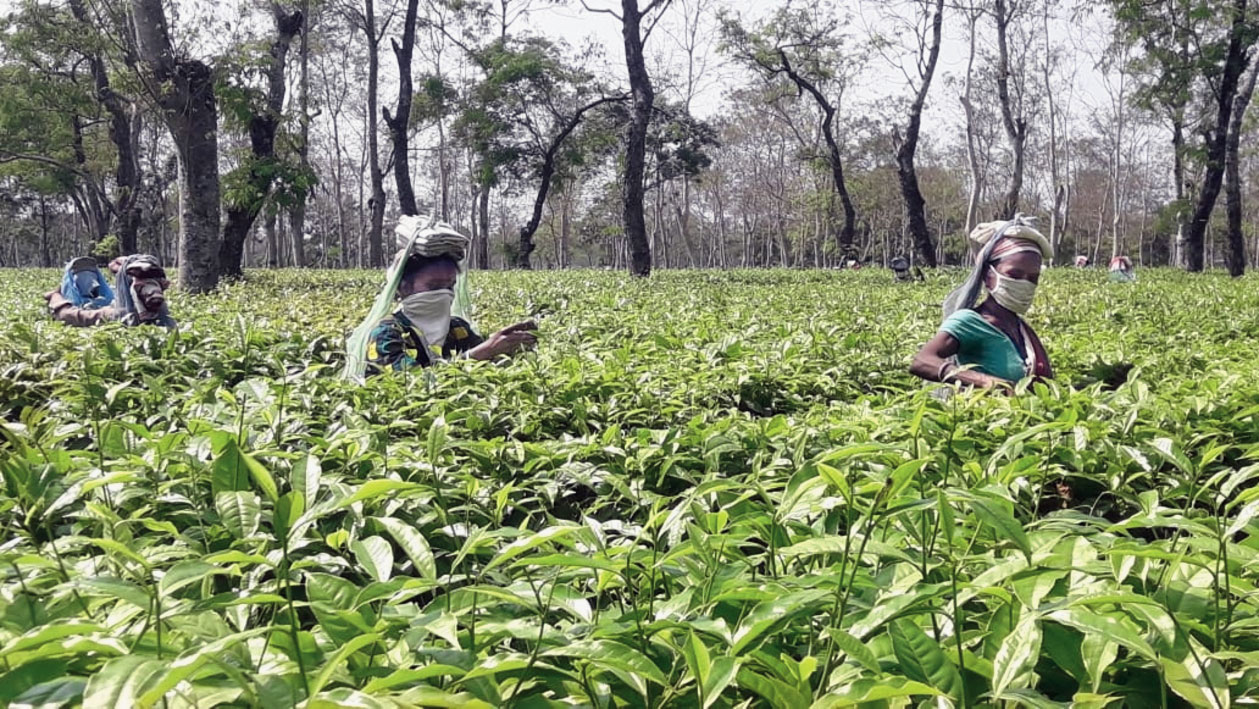Giving is a joyous experience and workers of Dikom garden in Dibrugarh district of Upper Assam saluted the management this Rongali Bihu by coming out voluntarily to pluck tea leaves despite the lockdown.
There was a mood of happiness and satisfaction as workers came out voluntarily in the morning to pluck without expecting payment, to thank the management for taking care of them during the lockdown. Moreover, they did not flout the norm of social distancing as pluckers, by garden norm, maintain a distance of one metre.
“The garden management is taking full care of us during the lockdown by providing ration and wages and this is our way of thanking them. This is a Bihu gift from us,” Birchi Mirdha, a worker, said.
“This is a small way of thanking them,” said Nisha Gowala, another worker.
“We pray to the Almighty that good days will come back to the world,” said Christina Tirki, yet another worker.
Dikom, a Rossell Tea garden, is spread over 610 hectares and produces 13 million kg of orthodox tea.
The tea industry is facing a huge loss of crop and revenue during the lockdown. A good amount of crop has already been lost and the industry is hoping that the second flush will not get lost. Gardens are now working with 50 per cent workforce.
Former managing director of Rossell India Ltd C.S. Bedi, who had worked for many decades in the tea gardens of Assam, said in a message to the garden management: “Well done Samar and Team Dikom. Having worked with you all for a while I am extremely proud of what has been achieved at Dikom over the years by you. These things are difficult to put in practice and it calls for years of affirmative action to build trust on part of the local management. Be consistently fair to the workers and they will give you more than they will take.”
Samar Jyoti Chaliha, superintending manager of Dikom, told The Telegraph, “The workers are supreme, the most important stakeholders in any industry. A motivated group of people is capable of taking an industry to any height. Such level of industrial relation is possible with years of mutual trust and good relationship with the people. One has to be consistently very fair to the people and strict in discipline. One must have a habit of listening and pay due respect when they deserve it.
“At Dikom, absenteeism at 15 per cent is the lowest in the industry. The workers take pride in it and have a sense of belonging to the estate. This is a result of years of good work. I am thankful to them for reposing faith in me.”
Tea industry experts say such kind of respect to the management does not happen suddenly. It takes years of motivation and good care of the workers by the management.










